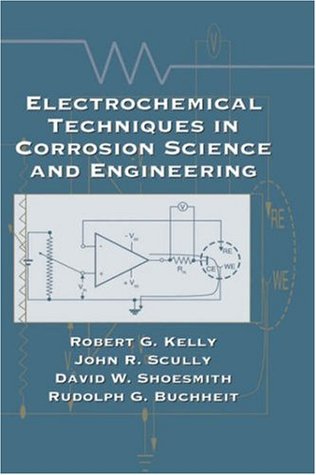Read Electrochemical Techniques in Corrosion Science and Engineering - RUDOLPH.G. BUCHHEIT | PDF
Related searches:
Electrochemical and surface analytical techniques applied to
Electrochemical Techniques in Corrosion Science and Engineering
Frontiers and Challenges in Electrochemical Corrosion Monitoring
Evaluating Corrosion and Passivation by Electrochemical Techniques
(PDF) Electrochemical Techniques in Corrosion Science and
Corrosion: Fundamentals and Experimental Methods Professional
Electrochemical Techniques and Corrosion Research with Industry
Electrochemical and Analytical Study of the Corrosion Inhibitory
1472 304 1184 2898 1440 2397 1216 2422 4258 3336 2454 993 3229 4429 2764 3625 136 1759 2936 2315 1410 4889 4634 224 3447 3682 1248 4428 859 4937 1255 1588 1448
Feb 27, 2019 the role and impact of four electrochemical techniques in the study of various corrosion applications are discussed, these are: scanning.
Electrochemical methods have been used for the characterization of alloys corrosion in molten glasses. � corrosion potential, polarization resistance, polarization.
Electrochemical polishing is a surface treatment method by which workpieces are restriction of metal assortment for processing; equipment corrosion.
Articles on electrochemical corrosion research, corrosion short courses. Penn state why use electrochemical techniques for corrosion measurement?.
Dec 29, 2017 why use electrochemical techniques for corrosion measurement?.
Feb 11, 2011 electrochemical corrosion is a process through which a metal returns to its lowest energy oxidation state.
Abstract—in this study, the electrochemical techniques which are used to analyze the corrosion behavior and the passive films are introduced in details.
Sep 12, 2019 electrochemical techniques deliver an alternative to traditional methods employed to establish the rate of corrosion.
En analysis method is greatly applied as a corrosion monitoring method in many.
Electrochemical characterization by ec-lab techniques corrosion is an electrochemical process involving the transfer of electrons between a metalic.
In this work the local electrochemical techniques scanning vibrating. Electrode technique (svet) and scanning kelvin probe force microscopy.
1 techniques used for microbiologically influenced corrosion (mic).
In addition, a former rilem technical committee, tc 154-emc “electrochemical techniques for measuring metallic corrosion” (started in 1992), set the fundaments.
The first part of the book reviews electrochemical techniques for corrosion monitoring, such as polarization techniques, potentiometric methods, electrochemical.
The diagram illustrates an electrochemical reaction occurring at the surface of a metal covered with a film of water containing dissolved oxygen.
Oct 7, 2013 applying a corrosion prevention product to steel isn't enough. If the workpiece is contaminated with something as minor as fingerprints or steel.
Microbiologically influenced corrosion (mic) has been receiving attention from different areas in the last years, as an answer to the demand of various industries�.
Nov 18, 2020 therefore, widely used electrochemical techniques for corrosion sensing are lpr, potentiodynamic polarization (pdp), open circuit potential.
“galvanic corrosion of copper-coated carbon steel for used nuclear fuel containers”, accepted for publication, cest, (2017).
Apr 28, 2015 pharmaceutical compounds as corrosion inhibitors. Keywords: chemical techniques, corrosion test, electrochemical techniques, adsorption.
The primary purpose of the guideline is to provide information on electrochemical techniques that are used to mitigate corrosion in reinforced concrete structures.
A piece of bare iron left outside where it is exposed to moisture will rust quickly. It will do so even more quickly if the moisture is salt water.
Part 1 electrochemical techniques for corrosion monitoring: electrochemical polarization technique:.
Feb 15, 2019 two synthesized polymers were studied as potential corrosion inhibitors for n80 steel in a sweet corrosive environment.
The course will cover the fundamentals of corrosion and various electrochemical techniques.


Post Your Comments: